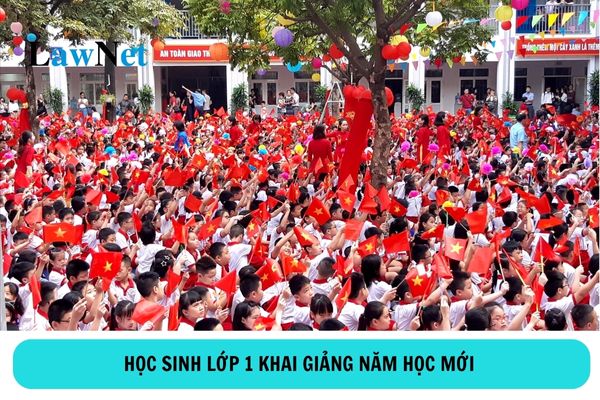What date is the first day of school for first-grade students in Vietnam in 2024?
What date is the first day of school for primary school students in Vietnam in 2024?
Based on Clause 2, Article 1 of Decision 2045/QD-BGDDT of 2024, which stipulates the schedule of the academic year 2024 - 2025 for preschool, general education, and continuing education nationwide:
The time framework for the academic year 2024 - 2025 for preschool, general education, and continuing education nationwide is issued as follows:
- The earliest school start date is one week before the opening ceremony. For first grade, it is two weeks before the opening ceremony.
2. The opening ceremony is held on September 5, 2024.
- The first semester ends before January 18, 2025, and the program and academic year concludes before May 31, 2025.
- Recognition of primary program completion and middle school graduation occurs before June 30, 2025.
- Admission to initial classes is completed before July 31, 2025.
- The high school graduation examination for 2025 is projected to occur on June 26 and June 27, 2025.
- Other national exams are organized according to the regulations and guidelines of the Ministry of Education and Training.
Thus, students of all grades, including first grade, will start the new academic year 2024 - 2025 on September 5, 2024.

When do first-grade students start the new school year 2024? (Image from the Internet)
What are the methods of assessment of first-grade students in Vietnam?
Based on Clause 2, Article 5 of the Regulation on Primary Student Assessment issued together with Circular 27/2020/TT-BGDDT, some commonly used methods of assessment of first-grade students include:
- Observation method: Teachers monitor and listen to students during lessons, use observation sheets, checklists, and diaries to record students' behaviors as evidence for assessing their learning and training progress.
- Assessment through portfolios, students' products, and activities: Teachers provide comments and evaluations on students' products and activity results, thereby assessing students according to relevant evaluation content.
- Oral examination method: Teachers interact with students through Q&A to gather information and provide timely feedback and assistance.
- Written test method: Teachers use tests consisting of questions and exercises designed according to the program's achievement requirements, in the form of multiple-choice, essay, or a combination to evaluate students' achievement levels in the necessary educational content.
What rights do first-grade students in Vietnam have?
Based on Article 35 of the Primary School Charter issued together with Circular 28/2020/TT-BGDDT, the rights of first-grade students are defined as follows:
(1). The Right to Education:
- Students have the right to education, learning, and all-round development to maximize their potential; to study at a school and class that implement the national primary education program conveniently located for them within their residency area.
- Students have the right to choose a different school or transfer to another school outside their residency area if the school can accommodate them.
- Primary school-aged students returning from abroad, children of foreigners learning and working in Vietnam, and children in difficult circumstances who have not yet attended school can transfer to a primary school if they wish. The principal will organize an assessment to place them in the appropriate class.
- Disabled students have the right to inclusive education in a primary school; they are provided with the necessary conditions for learning and training; they can learn and be assessed according to their individual education plans.
- Students may shorten the time for completing the curriculum, study at an age older than the regulated age, extend the study time, or repeat a year.
- Talented and intellectually advanced students can skip grades within the scope of primary education. The specific procedure includes the following steps:+ Parents or guardians submit a request to the school.+ The school principal forms an assessment and advisory council, including the principal or vice-principal, the school’s parent representative committee, the student's current teacher, the teacher of the upper class, health staff, and the Team leader.+ Based on the council’s assessment, the principal completes the documentation and reports to the Head of the Education and Training Department for consideration and decision.
- Students with limited academic performance who have directly received guidance and assistance from teachers and parents but still do not meet academic and training requirements will be considered by the principal, based on the teacher’s report, to either advance to the next grade or repeat the year. Appropriate educational measures will be decided in consultation with the family.
(2). The Right to Protection, Care, and Respect:
- Students are entitled to protection, care, respect, equality, and democratic treatment; to have their legitimate rights and interests safeguarded; to be provided with comprehensive information about their learning and training processes; to ensure conditions related to time, facilities, hygiene, and safety for learning and training.
(3). The Right to Participation:
- Students have the right to participate in activities that develop their individual abilities; to express their opinions and personal desires.
(4). The Right to Scholarships and Social Policies:
- Students are eligible for scholarships and social policy benefits according to regulations.
(5). The Right to Other Legal Provisions:
- Students are entitled to other rights as stipulated by law.

